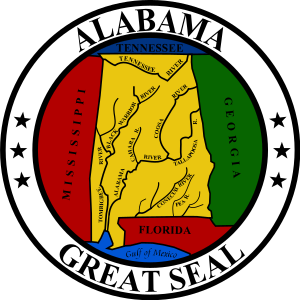 Image via Wikipedia
Image via Wikipedia
February 24, 2010, 11:48AM
Alabama has seen a handful of high-profile cases of human trafficking within state lines in recent years -- from a 2007 raid on a brothel at an Albertville mobile home to the arrest last year of a Florence man charged with coercing a minor to perform a sex act for money.
While federal prosecutors have moved on those cases, they can't pursue them all, say some victims' advocates and state lawmakers. They're pushing for a state law against human trafficking that supporters say would lead to more prosecutions in Alabama of what's considered modernday slavery.
"Right now we've only got one arm of government that's involved, and we're depending on the federal government to take care of everything in Alabama," said state Rep. Jack Williams, R-Vestavia Hills.
Williams and Sen. Wendell Mitchell, D-Luverne, introduced bills this session that would criminalize human trafficking. Mitchell's version passed the Senate on Tuesday and now must go to a House committee, while Williams' bill passed a House committee earlier this month. Such a law would bring Alabama in line with 43 other states, according to the Polaris Project, a national organization that supports the legislation.
"The federal government just cannot prosecute all the cases of human trafficking in the states," said Kristin Fortin, the group's policy counsel.
Beyond criminalizing human trafficking, the proposed law would provide mandatory restitution for victims and give them a means to bring civil cases against traffickers. The crime of human trafficking in the first degree would be punishable by 10 years to life in prison, as a Class A felony. In addition, anyone who interferes with an investigation into trafficking could be charged with a Class C felony and be sentenced to one to 10 years behind bars.
Now, such acts must be prosecuted on the state level under charges such as "promoting prostitution" or kidnapping, said Barry Matson, deputy director of the Alabama District Attorney's Association.
"We as prosecutors and law enforcement need to be able to have every tool we can to make those cases," he said. "This gives us another means to protect people who need protecting."
A state law gives local law enforcement an incentive to focus on trafficking cases, Fortin said. Ultimately, it will empower state and local officials to root out more of these crimes, Williams said.
It's difficult to estimate the number of human trafficking victims in Alabama, or anywhere, because victims are hidden and often moved regularly, said Sara Jane Camacho, executive director of Freedom to Thrive. The Birmingham-based nonprofit organization seeks to raise awareness about human trafficking.
Traffickers likely pass through Alabama, she said: "We're on the routes from Atlanta down to Texas and Florida, which are huge pockets for sex trafficking."
One gauge of human trafficking in the state is the Polaris Project's hotline, which has received 13 calls about potential human trafficking in Alabama since December 2007, Fortin said. She guessed the number would be higher if the hotline were better publicized.
Another indicator of the problem, Camacho said, is the presence of runaways. One of every three teenagers on the street will face sexual exploitation for money or other economic reasons within 48 hours of leaving home, she said, citing National Runaway Switchboard statistics.
E-MAIL: estock@bhamnews.com
State laws sought on human trafficking | al.com
![Reblog this post [with Zemanta]](http://img.zemanta.com/reblog_e.png?x-id=d9906748-fc7e-46a3-a698-5f52f95dc53c)

No comments:
Post a Comment